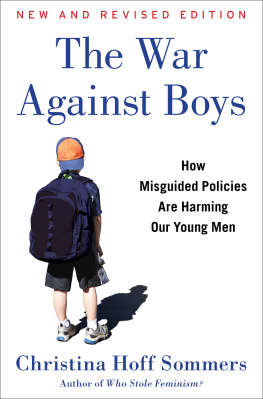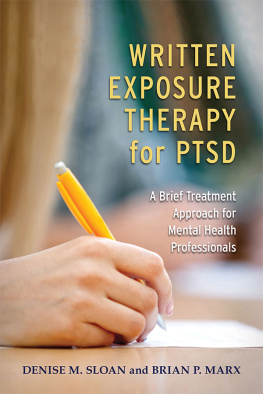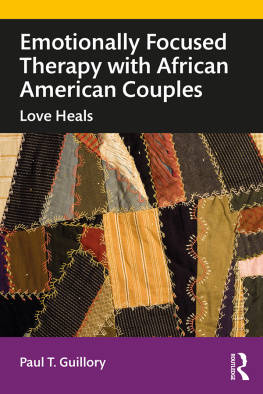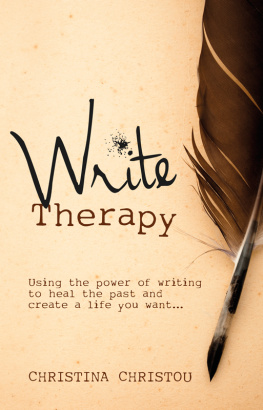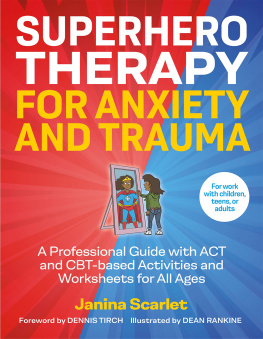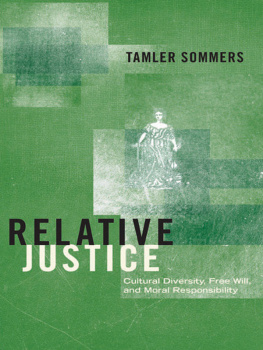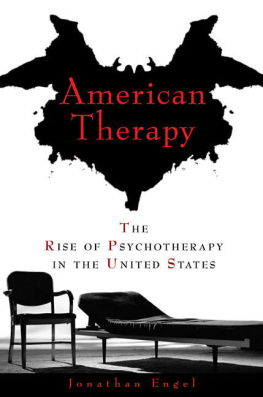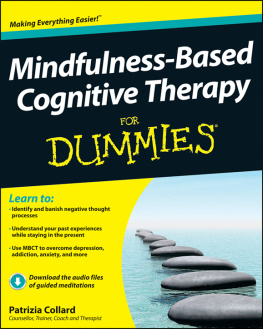One Nation Under Therapy
In 2000, five Canadian psychologists published a satirical article about Winnie the Pooh entitled Pathology in the Hundred Acre Wood. At first glance, say the authors, the hero of A. A. Milnes 1926 childrens classic appears to be a healthy, well-adjusted bear; but on closer and more expert examination, Pooh turns out to suffer from attention deficit/hyperactivity disorder, binge eating, and borderline cognitive functioning (a bear of very little brain) to name just a few of his infirmities. Poohs friends are similarly afflicted: Rabbit fits the profile of narcissistic personality syndrome; Owl is emotionally disturbed, which renders him dyslexic; and Piglet displays classic symptoms of generalized anxiety (a diagnosis that is admittedly difficult to dispute). Eeyore the donkey has low self-esteem and an inability to enjoy himself, a condition known as anhedoniawhich the authors refer to as anhe(haw)donia.
The Canadian spoof makes a serious point: the propensity of experts to pathologize and medicalize healthy children en masse has gotten way out of hand. The past decade has seen a cascade of books and articles promoting the idea that seemingly content and well-adjusted Americansadults as well as childrenare emotionally damaged.
Mary Pipher, the best known of the child-crisis writers, describes American society as a girl-poisoning culture.
Not to be outdone, Harvard psychologist William Pollack soon followed with Real Boys: Rescuing Our Sons from the Myths of Boyhood (1998). Pollacks book claims to show that adolescent boys who appear to be healthy and happy, are really emotionally deprived and quietly in despair.
For more than three decades, various experts and popular writers have been telling us that adults are miserable too. For example, in 1993 the prestigious Commonwealth Fund, a New York philanthropy concerned with public health, released the results of a poll on womens health.
But then, in 1999, feminist author Susan Faludi, a veteran of the best-seller lists, called attention to the devastating emotional problems of yet another group of fragile Americans: adult males. In Stiffed: The Betrayal of the American Male, Faludi contended that American men cannot live up to the conventional stoic ideal of manliness and so, en masse, they lose their sense of self. No wonder men are in such agony, she says.
And no one has been more successful in making a career out of an alleged national anguish than Daniel Goleman, a former New York Times science writer. His best-selling 1995 book Emotional Intelligence described a nation suffering from profound emotional malaise and in the grip of surging rage and despair.
In an article in the Wall Street Journal, New York Observer editor Jim Windolf tallied the number of Americans allegedly suffering from some kind of emotional disorder. He sent away for the literature of dozens of advocacy agencies and mental health organizations. Then he did the math. Windolf reported, If you believe the statistics, 77 percent of Americas adult population is a mess . And we havent even thrown in alien abductees, road-ragers, and Internet addicts. If we factor in the drowning girls, diminished boys, despondent women, agonized men, and the all-around emotionally challenged, the country is, in Windolfs words, officially nuts.
One Nation Under Therapy offers a more sanguine view of American society. It points out that there is no evidence that large segments of the population are in psychological free fall. On the contrary, researchers who follow the protocols of genuine social science find most Americansyoung and oldfaring quite well. If they are crashing, burning, in agony, or trapped in medieval Denmark, they do not seem to know it.
Of course, we are not suggesting that everyone is perennially happy or possessed of an abiding sense of well-being. Many, if not most, human beings are mildly neurotic, at times self-defeating, anxious, or sad. These traits or behaviors are characteristic of the human condition, often emerging in different life circumstancesthey are not pathological. And they are certainly not new. What we oppose is the view that Americans today are emotionally underdeveloped, psychically frail, and that they require the ministrations of mental health professionals to cope with lifes vicissitudes. The crisis authors offer only anecdotes, misleading statistics, and dubious studies for their alarming findings. Yet they are taken very seriously.
Goleman, for example, has become a secular apostle of the credo that continuous monitoring of ones feelings is healthful and liberating. He is founder and cochair of the Consortium for Research on Emotional Intelligence in Organizations, which promotes and evaluates self-awareness workshops for managers in companies such as American Express and Johnson & Johnson.
Goleman endorses many standard, commonsensical, and uncontroversial child-rearing practices that go back at least to Aristotlee.g., teaching a child to control impulses and to temper anger; but his distinctive and original contributions concern not just emotional regulation but emotional self-expression and focused emotional awareness. For example, he champions classroom exercises that encourage children to talk at length about their feelings. He praises a school program called Self Science, which he calls a model for the teaching of emotional intelligence. In a typical self-science exercise, when the teacher calls the roll, the students do not say here, but take the opportunity to identify their feelings at that moment.
Here is Golemans description of a roll call in one Northern California classroom:
TEACHER: Jessica.
JESSICA: Im jazzed, its Friday.
TEACHER: Patrick.
PATRICK: Excited, a little nervous.
TEACHER: Nicole.
NICOLE: Peaceful, happy.
Goleman appears not to recognize the intrusive nature of such seemingly innocent programs. Nor does he seem to consider the possibility that what healthy children need most is guidance on how to be civil and ethicalnot how to be self-obsessed (something many children have no problem learning on their own).
These would-be healers of our purported woes dogmatically believe and promote the doctrine we call therapism. Therapism valorizes openness, emotional self-absorption and the sharing of feelings. It encompasses several additional assumptions: that vulnerability, rather than strength, characterizes the American psyche; and that a diffident, anguished, and emotionally apprehensive public requires a vast array of therapists, self-esteem educators, grief counselors, workshoppers, healers, and traumatologists to lead it through the trials of everyday life. Children, more than any group, are targeted for therapeutic improvement. We roundly reject these assumptions.
Because they tend to regard normal children as psychologically at risk, many educators are taking extreme and unprecedented measures to protect them from stress. Schoolyard games that encourage competition are under assault. In some districts, dodgeball has been placed in a Hall of Shame because, as one leading educator says, Its like Lord of the Flies , with adults encouraging it.
It is now the practice for sensitivity and bias committees inside publishing houses to expunge from standardized tests all mention of potentially distressing topics. Two major companies specifically interdict references to rats, mice, roaches, snakes, lice, typhoons, blizzards, and birthday parties.


